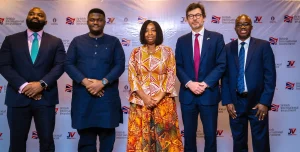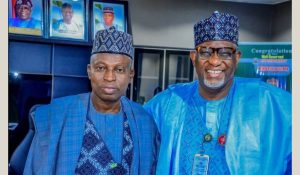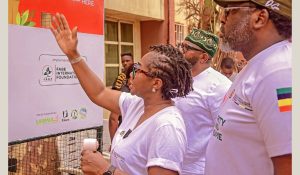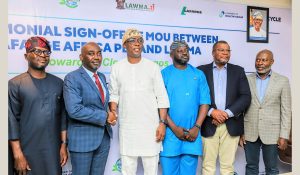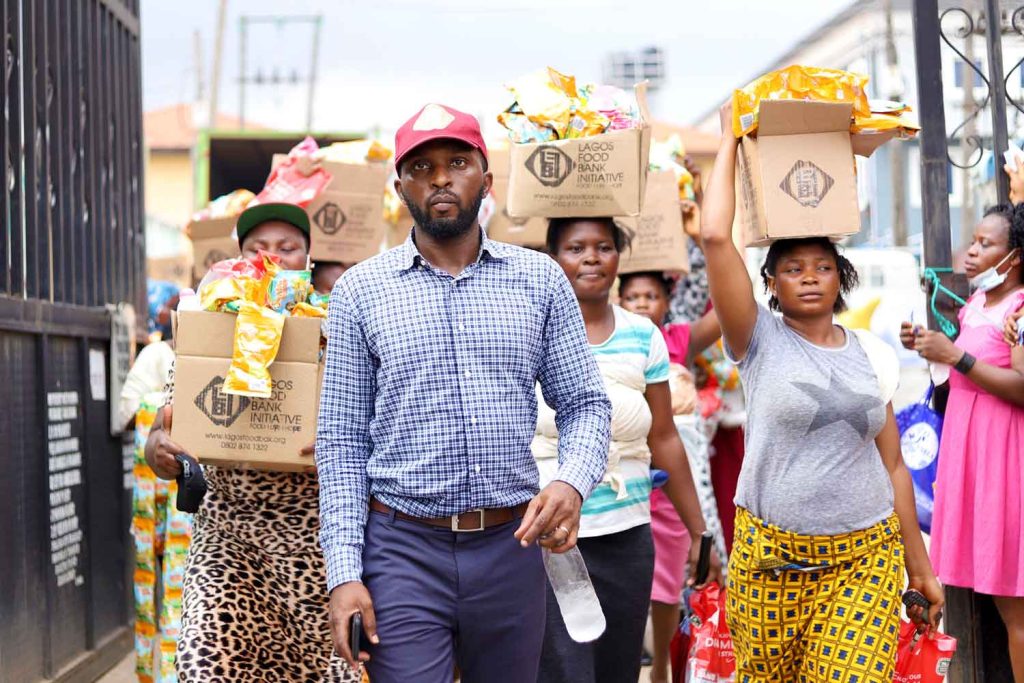
An Encounter with Michael Sunbola: The Young Lawyer Giving it all to Tackle Hunger, Deprivation Across Nigeria
A writer once stated that only those who have learnt the power of sincere and selfless contribution, experience life’s deepest joy and true fulfillment. In the same vein too, another wrote that by becoming the answer to someone’s prayer, we often find the answer to our own.
In this age of selfishness, it is truly ennobling and worthy of commendation to see young people sincerely engaging in altruistic activities. Giving of themselves, giving of their time and giving of their resources without any selfish motive, especially, in areas that are key to human existence, food provision.
And when we consider that in the 2022 Global Hunger Index (GHI) chart, Nigeria scored a miserable 27.3, we will understand the seriousness of poverty-induced hunger in the country and why it is imminent that something be done about it.
Food is very important to human existence. It is one of the basic necessities of life. Without food, the body cannot function, as the nutrients in food make it possible for the body to function and fight infection. In fact, food is life.
Painfully, this same food in this part of the world and several other climes, is a luxury that is beyond the reach of many. This also accounts for the reason why the United Nations (UN) in 2012 assigned hunger elimination number two position in its Sustainable Development Goals.
It was in the search for corporates and private individuals who have been making exploits in the area of attaining the SDGs that CSR Reporters encountered Michael Sunbola, the founder of Lagos Food Bank Initiatives (LFBI), and he spoke about his own personal contributions to ensuring that Nigeria attains the SDG 2 goal.
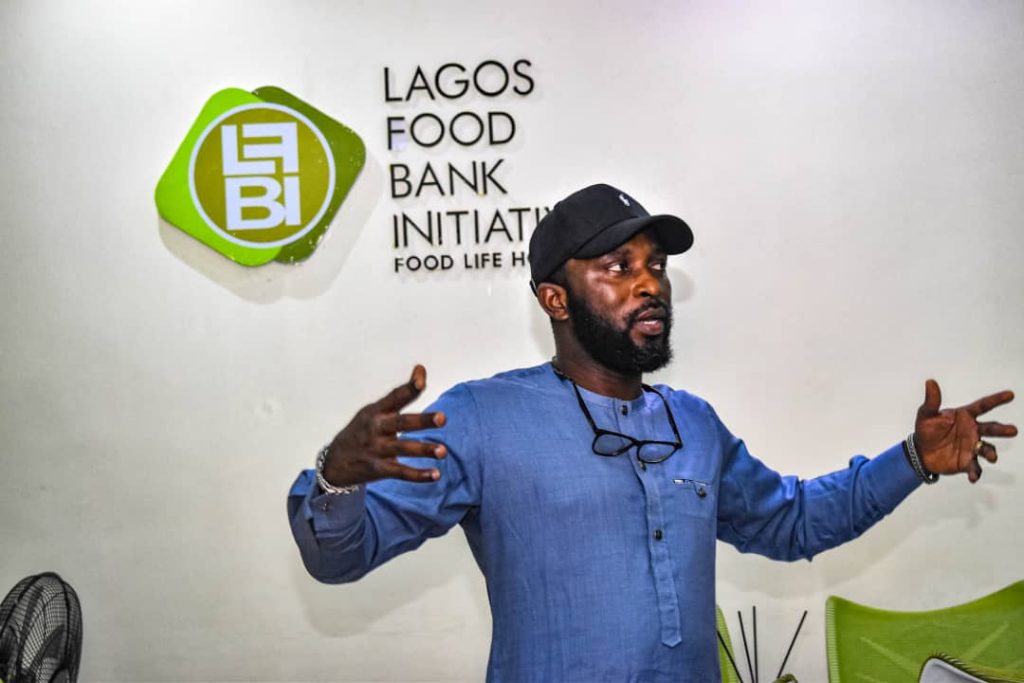
Sunbola, a legal practitioner, disclosed that he conceived of the idea of founding the Lagos Food Bank Initiatives based on the stark realities of the massive nutrition gap that stare us in the face in Nigerian society. He explained further:
“This is also considering that the purchasing power of people is going down from time to time. More than 63 percent of the population are multidimensionally poor. Nigeria is the country with the highest rate for hunger and malnutrition in Africa and second in the world.
“It is just glaring why we do what we do. You can imagine what people still go through today. These are the factors that basically drive me to do what I am doing. I don’t do them alone, I have people working with me as a team.”
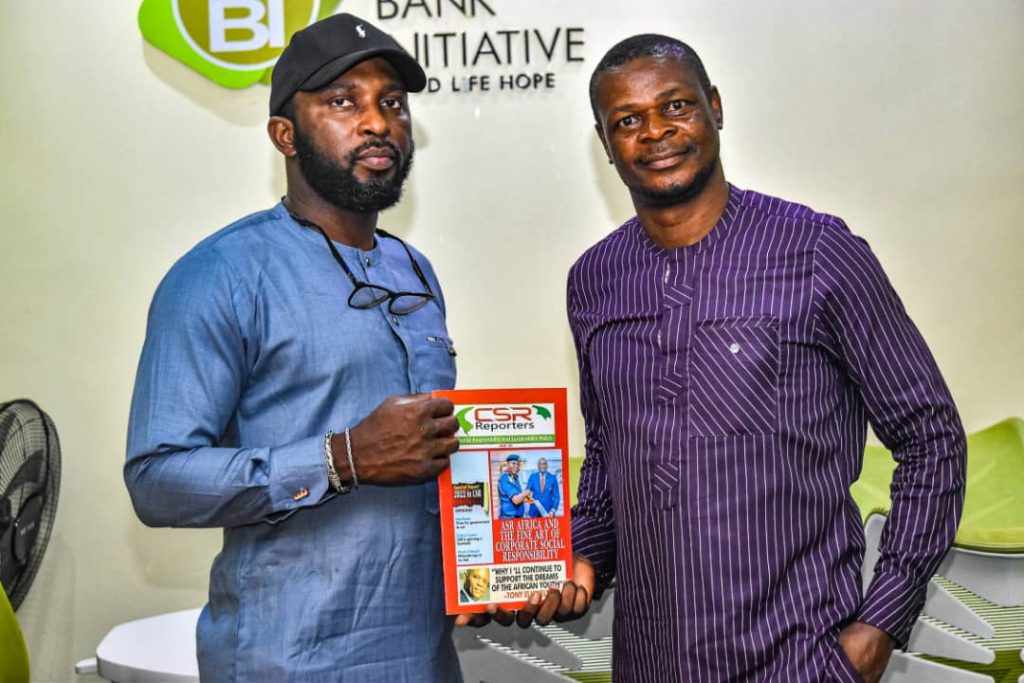
It was purely a divinely inspired initiative, he said. He doesn’t have a family history of anyone that has toed this path previously, nor has he ever been involved in any CSR voluntary activity before now.
He narrated that the initiative being named Lagos Food Bank does not imply that they are restricted to the Lagos metropolis alone as he said: “We have another sister organization that is an initiative of the Lagos Food Bank that reaches out to other nonprofit organisations in other parts of the country. That one is called Food Network Nigeria. So, we have a network of other NGOs who also support in the Southwest, Southeast and some parts of the North.”
The Lagos Food Bank, Sunbola noted, is not restricted to just food provision, they also indirectly, secure and make the environment safe for habitation: “The amount of food that goes into wastage in Nigeria is worth over $7billion. Most of them happen at the postharvest stage, we are talking about almost 40 per cent of our food going into waste.
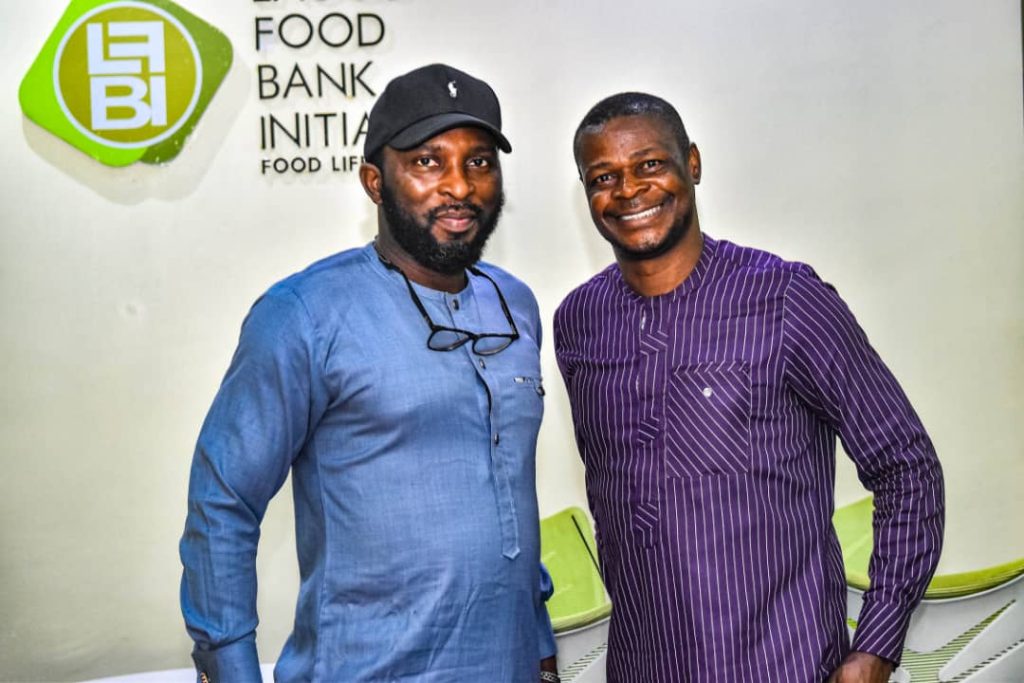
“A lot of others go into waste due to date labelling on the products and expiration dates or shelf life. They are still very much good but because of the labelling they are wasted.
“What we do is to capture this food and give it to people in need. So we are not just about feeding the hungry we also capture surplus food and food that could have gone into waste which in turn have adverse effects on our environment.
“Foods that go into landfills impact the environment. When food goes into the land, it emits greenhouse gas (methane), which is one of the most dangerous emissions that drive climate change. So what we do is to ensure that such foods don’t end up in landfills.”
So, one way or the other, he said, they are helping to secure the environment. That way, they are helping to reduce the impact on climate change through capturing foods that would have ended up in landfills.
Take note, these foods, according to him, are not expired. They are still very much good and would be distributed to would-be beneficiaries before their expiration. Their own job, he mentioned, is to make sure that the foods get distributed before their expiration.
Because he was altruistically inspired to walk this path, Sunbola never waited for the funding to come from anywhere. He pointed out that he actually started with his personal funds until public-spirited people, who saw the sense in what he was doing, started supporting them.
And ever since, he said, it’s been driven by the civil society, corporate bodies, private individuals and some international partners.

Speaking on the distribution processes, he stated thus: “There are two models. We have the walk in and we have the community model for food distribution. There are people who walk into the food bank to access food, who are also not far from us here. And there are people that we go to meet in their communities because of the distance between the food bank and them.
“There is a card system that we use to identify them to prove that they are truly in need. The ones in the community are also profiled to ensure their level of vulnerability and a number of other factors.”
Lagos Food Bank, he explained, is strictly focused on elimination of hunger and does not delve into other areas of intervention. The CEO maintained that they don’t pay school fees, they don’t pay house rents and they don’t provide medical assistance.
“Everything we do is within SDG2, nutrition intervention for children, lactating mothers, pregnant women; and school feeding programmes. We also do empowerment for family farming. For women to have farms in their backyards. Our focus precisely is on what can put food on the table.”
Despite having Lagos in its name, the initiative, according to its founder, has no link or connection with the Lagos State government. It is purely a private nonprofit organization, he said.
“We are not really enthusiastic about getting support from the government because when we needed it, it didn’t come. At the beginning we thought maybe we could do something with the state government. It didn’t work out. So we focused on what we needed to do by ourselves.
“A lot of people have this misconstrued impression about the Lagos Food Bank. We don’t have any link at all with the government, not even an atom of it. They have never given us any funding before.
“It is a Lagos-based initiative. tTat is why it is called the Lagos Food Bank not because it is funded by Lagos State. If we have gotten funding from Lagos State, we will declare it. Since its inception, they have not given us a dime.”
But that notwithstanding, they have their own ways of sourcing and accessing funds: “There are different methods we apply. We have the fundraising officer, we also reach out through Instagram, some of them even walk up to us saying that they want to do CSR initiatives through Lagos Food Bank, seeing what we have done.”
The Barrister reiterated their mission to ensure every community in Nigeria has a food bank by stating that currently they have NGOs who assist in ensuring that the goal becomes a reality as Lagos Food Bank mustn’t necessarily be physically present in all the communities. This, he said, might constitute an administrative bottleneck.
“But we work with other NGOs and it reduces administrative costs. If you have the same people who share the same dream and passion with you, you just have to work with them to achieve it. But it doesn’t really have to be us present in all the places. It will be subject to abuse.”
Sunbola revealed that their school feeding programme takes place three times a week and they give out an average of N500 food items to each student/pupil.
These foods, he revealed, are purchased and packaged. They include packed cereals, milk and bread that is freshly supplied by the bakery they work with. They also add bread spread and milo to the package and some other days, they distribute rice.
Their target schools include low cost private schools where students pay N50 per day as school fees.
He spoke on hiccups so far encountered in executing this initiative: “Mainly relating to funding. Also, the concept of food banking is relatively new in this part of the world. So an average person will still want to go to an orphanage rather than support a food bank because that’s the traditional way of donating food. But there are more children on the streets than you have in an enclosed environment.
“These children might not be under any orphanage care, but they truly need help. So, we still have that challenge of people coming to donate food. People donate money, no doubt. But not food. We get to purchase most of the food.”
It’s been eight years since the Lagos Food Bank was birthed and here are his personal assessment of the initiative: “We have been tracking our impact and over time we have reached 2.4million people since inception and I can say that the programme has helped to lift children who could have probably died of malnutrition or had some irreversible damage to their cognitive development. The programme has helped over 2,000 of such children in Lagos alone. For families, hope has been given to them because food came at a time when they needed it the most.
“And there is a programme that we organize to help people living with diabetes. We teach them how to manage their condition. It has helped them as well. So we have in-house registered dieticians and nutritionists that help these beneficiaries.
“And then for the school feeding programme, I will say kids are more in school and they look forward to the food at school. And a lot of them now like to go to school because they are hardly hungry in class. Then again, several families have fresh foods to eat because they have farms in their backyards where they harvest these foods.”
Sunbola is not alone on this. His amiable wife also keys into the initiative with him. In actual fact, he explained that they started it together. And though she also has her personal career and not physically present at the Lagos Food Bank, she supports with her resources at the backend.
Lagos Food Bank, the Founder hinted, is open to partnering with the governments provided there are no stringent terms and conditions attached.
“There is nothing wrong in working with the government provided it is not restricted and doesn’t come with stringent terms and conditions that will make us look partisan or support a political agenda. There is nothing wrong with helping them solve a problem or facilitate a solution.
“We will not work with any political party. But we can work with the government of the day. Currently, I am part of the taskforce for National Food System Implementation Pathways for the Federal Government. I have been offering my own knowledge and skills to help that process and it doesn’t make me partisan.”
Here are Sunbola’s projections for the Lagos Food Bank in the next five years: “We want to keep growing, expand our facilities and continue to build our capacity to reach more people.
“We want to also expand our network of NGOs that will support us so that they too can reach a lot of people in distant areas. In the next five years, we should be physically present in Abuja and Port Harcourt and continue to expand.”
Even though they work with corporate organisations, the initiative, he said, can never be used to launder illicit funds. “We work mostly with notable brands. Corporate organisations who are very transparent.
“Lagos Food Bank cannot be used to launder or claim funds. We will never get ourselves involved with such because we work with more than 25,000 volunteers. It is because they know that this is a reputable organization that they are willing to give of their time, free of charge. So, why get some temporary gains for a long time reputational smear on the organization.”
Now, outside of the Lagos Food Bank, he expressed his views on how to make the Federal Government schools feeding programme more effective:
“I will say that they are doing a fantastic job. They are working with different schools. Implementing projects can be cumbersome sometimes. There could be hiccups, challenges and different problems that may stand on their way to implementation.
“But I just feel that it could be more cost-effective if they work with the private sector. And it can be more effective than it is. On their own, I think they are trying their best and it is a fantastic initiative. It just needs a little fine tuning to ensure it makes the expected impact that was set out for it.”
He emphasized that under no circumstances would he advise that the programme be stopped. “School feeding programme is an initiative that is done in several climes. It is not just peculiar to Nigeria alone. Under no circumstance would I advise that it be stopped.
“But it can be enhanced, better managed and monitoring and evaluation can as well be better done. I know the impact of such a project on children who look up to such foods in schools.”
He however admitted that the programme be partly handled by the government and partly outsourced to the private sector.
“It is not unusual for the Nigerian government to undertake initiatives or projects that could have been assigned to the private sector. Before a government gets into power, there are a number of people that get all kinds of compensation with different programmes. We need to get to that point where we begin to see projects like this as something that shouldn’t be used as compensation for people, friends and cronies.
“They should work with people who have good track records. I think it can be divided. They can handle parts and contract out parts to the private sector and measure their performance as well. The process should also be decentralized.”
Despite being a litigation lawyer, Sunbola is able to joggle through all the tasks and assignments before him because in his own words, it is what he likes to do and he finds ways around it. This is also coupled with the fact that he has friends and colleagues, who share the same passion with him and with whom he works.






